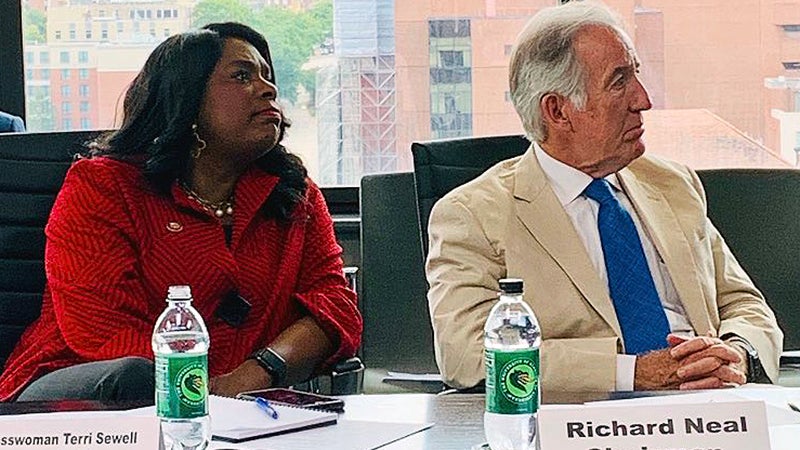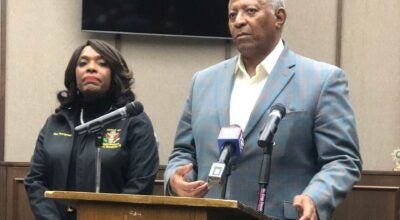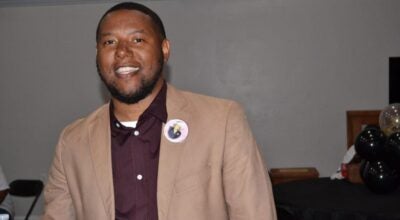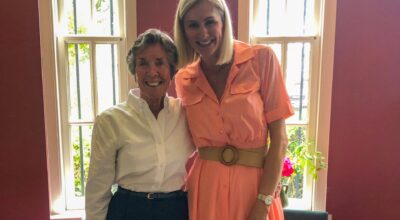Sewell talks health barriers
Published 2:31 pm Wednesday, July 24, 2019
On Monday, Rep. Terri Sewell, D-AL, Vice Chair of the House Ways and Means Committee, attended a meeting at the University of Alabama – Birmingham (UAB) alongside committee Chairman Rep. Richard Neal, D-MA, to talk with Alabama medical professionals and stakeholders about precision medicine and the state of rural hospitals.
Among those in attendance for the meeting was Vaughan Regional Medical Center (VRMC) CEO David McCormack, who recently attended a similar event hosted by Sen. Doug Jones, D-AL, at Wallace Community College – Selma (WCCS).
Leadership from UAB’s Alabama Genomic Health Initiative, the Southern All of Us Program and the Center for Clinical and Translational Science talked about precision medicine, an approach to patient care that allows doctors to select treatments based on a genetic understanding of a patient’s ailment, and continuing efforts to address health disparities across the country.
Further, Neal and Sewell talked with hospital administrators from across the Seventh Congressional District, McCormack among them, as well as the Alabama Hospital Association, about solutions to health disparities and the closure of rural hospitals.
“It was good for them to have us there to speak from our standpoint,” McCormack said. “It was certainly encouraging to have one of the most powerful congressmen in the country come to Alabama and recognize Rep. Sewell as a leading congress member, as far as rural health goes.”
In a statement from Sewell’s office, the congresswoman noted that an Alabama Department of Public Health (ADPH) study found that minority populations in Alabama often have poorer access to care, preventative services and health insurance and, as a result, often have higher rates of chronic disease and mortality and poorer health outcomes than white people.
For his part, McCormack has seen that bear out in Selma.
“It’s certainly true,” McCormack said. “If you don’t have health insurance coverage, that restricts your access unless you can pay for your routine doctor visits.”
Because many people cannot afford such an expense, McCormack said, routine check-ups are missed for chronic illnesses like diabetes and hypertension, which plague many in the area, and the effects compound until a person is facing “pretty severe illnesses that are going to cost a lot of money down the road.”
By contrast, McCormack noted, access to health insurance coverage allows people to manage these illnesses and live normal lives.
Sewell touched on this issue as well.
“UAB is home to some of the most cutting-edge research and medical developments taking place in the world, but many rural and underserved Alabamians may never access that innovation because of cost and access barriers that we are working to address,” Sewell said in a press release. “Chairman Neal and I agree that every single American deserves the highest quality healthcare available and that universal health coverage must be a central legislative priority.”
To McCormack, expanding Medicaid is an “essential” part of tackling the health disparities affecting minority communities and ensuring that rural hospitals are able to keep their doors open.
Still, McCormack noted, there are other strategies that have to be put in place alongside the expansion of Medicaid.
“We still have to have a lot of education,” McCormack said. “People have to accept responsibility for their own health outcomes and a lot of that comes from education. A lot of people just want to take a pill and feel better and that’s not always the solution.”
McCormack said that people have to begin maintaining healthier diets and exercising regularly, simple moves that can have a dramatic impact on a person’s well-being, but they must also have the kind of coverage that Medicaid expansion would provide to low-income families.
“People have to have access to healthcare,” McCormack said. “A lot of that comes from giving them some kind of health coverage. A lot of working people today aren’t able to afford health insurance. It is a serious problem and we’ve got to address it.”






